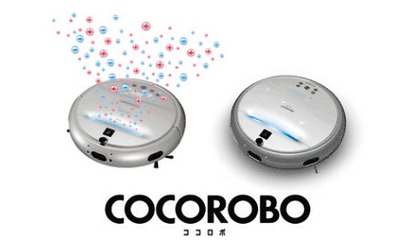Japanese always takes pride in developing some of the first innovations in robotics and technological gadgets. Hence, it is not surprising to read that a circular roaming vacuum cleaner that looks like iRobot's Roomba vacuuming machine is trilingual and knows several humorous dialect.
Manufactured by Sharp Corporation, Cocorobo, can also send photos taken from your home to your cell phone, aside from voicing out 36 phrases including "Long time no see" and "Hello," in Japanese, English and Chinese.
The Japanese electronics maker said in a press release that the robot also speaks the Kansai dialect of southwestern Japan widely viewed as more comical and witty than standard Japanese.
But its linguistic abilities are designed for fun, not for following complex orders or lengthy dialogue.
The machine, whose name is a play on the word for "heart," or "kokoro," answers, "So good," when asked "How's it going?" In the Kansai dialect, it replies the equivalent of, "I'm cool and feeling good."
Sharp is based in Osaka, where the Kansai dialect is spoken.
Cocorobo sells for 130,000 yen (US$ 1,600) and goes on sale next month in Japan, and later in China and other Asian nations. Specific launch dates and other overseas sales plans were undecided.
The dinner-plate size robot also purifies the air while moving about a room, and is handy in finding lost items under furniture because of its built-in camera, according to Sharp.
Japan is known for its prowess in robotics, widely used in manufacturing such as auto plants. The most intelligent robots look almost human.
Sharp, whose flat-panel TV business has been battered by competition from cheaper Asian rivals, plans to produce 4,000 Cocorobo robots a month. It also plans to produce 6,000 per month of a version that only vacuums and can't talk, which will sell for 90,000 yen (US$ 1,100).
Manufactured by Sharp Corporation, Cocorobo, can also send photos taken from your home to your cell phone, aside from voicing out 36 phrases including "Long time no see" and "Hello," in Japanese, English and Chinese.
The Japanese electronics maker said in a press release that the robot also speaks the Kansai dialect of southwestern Japan widely viewed as more comical and witty than standard Japanese.
But its linguistic abilities are designed for fun, not for following complex orders or lengthy dialogue.
The machine, whose name is a play on the word for "heart," or "kokoro," answers, "So good," when asked "How's it going?" In the Kansai dialect, it replies the equivalent of, "I'm cool and feeling good."
Sharp is based in Osaka, where the Kansai dialect is spoken.
Cocorobo sells for 130,000 yen (US$ 1,600) and goes on sale next month in Japan, and later in China and other Asian nations. Specific launch dates and other overseas sales plans were undecided.
The dinner-plate size robot also purifies the air while moving about a room, and is handy in finding lost items under furniture because of its built-in camera, according to Sharp.
Japan is known for its prowess in robotics, widely used in manufacturing such as auto plants. The most intelligent robots look almost human.
Sharp, whose flat-panel TV business has been battered by competition from cheaper Asian rivals, plans to produce 4,000 Cocorobo robots a month. It also plans to produce 6,000 per month of a version that only vacuums and can't talk, which will sell for 90,000 yen (US$ 1,100).


No comments:
Post a Comment